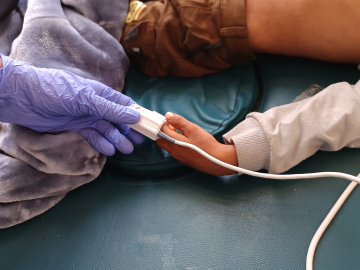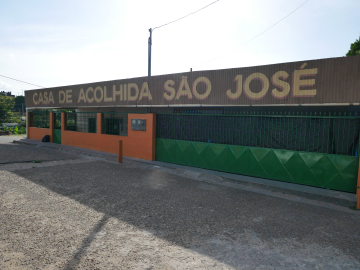Strengthen Monitoring of Attacks on Health Care to Uphold Public Health and Human Rights
Health care workers have already endured at least 695 attacks so far in 2021, a year marked by a rise in complex humanitarian emergencies. Myanmar alone has seen 260 attacks. Afghanistan and Central African Republic have seen over 42 and 81 attacks, respectively. The list of affected countries is long, including Nigeria, Yemen, Sudan, DRC, and others.
Alarmingly, these numbers are conservative estimates; many attacks on health care go unreported due to the inability to report or fear of retaliation. These attacks are a gross violation of human rights and disrupt our progress towards global goals aimed at bettering public health.
International humanitarian law has gradually advanced to create binding obligations to protect patients, health care workers, and systems from attacks. However, without effective monitoring and understanding of the extent of the problem, ensuring accountability remains a challenge.The WHO launched the Surveillance System for Attacks on Health care (SSA) in December 2017 to create a mechanism to monitor attacks against health care. The SSA benefits from the legitimacy, impartiality, and the global reach of the WHO, but reforms are necessary to facilitate accountability.
The SSA uses primary data sources via local partners associated with WHO country offices and a publicly available methodology to monitor attacks on health care, sharing these data via a public dashboard. Advocates, UN bodies and other organizations use SSA data to understand the extent of attacks on health care and to facilitate accountability to prevent attacks, as seen in the recent UN call to protect the safety of health care in Myanmar.
Many in the humanitarian, legal, and public health communities have argued that strengthening the monitoring of attacks on health care is a prerequisite to accountability—but how exactly can we improve monitoring in complex humanitarian settings such as conflict or post-conflict zones? We examined the history of the SSA and spoke to key stakeholders across the humanitarian and global health landscape to find answers.
We conclude that the SSA needs to be strengthened on 2 fronts:
Data collection:
- WHO needs to make the SSA a priority, providing additional support to integrate the SSA in country level programming. This support should be political, administrative, and financial. Prioritization of the SSA on the WHO agenda, with administrative and financial support, will lead to increased political buy-in at the country level. This support can help the SSA collect additional data on types of weapons, specific attack locations, and types of attacks, which will improve the comparability of the data and facilitate accountability.
- The SSA also needs to improve its methodology of data collection—providing more contextual data in descriptions of attacks, and comparing data with other major databases (e.g., Insecurity Insight/Safeguarding Health in Conflict Coalition database)—allowing the WHO to assess the accuracy and validity of data.
Data dissemination:
- Although the SSA does not directly disseminate data, the WHO should look to provide in-depth assessments. These assessments should include analysis of attack trends and development of case studies to improve understanding of the severity and the extent of attacks on health care in regions with longstanding and ongoing attacks.
- While enhanced analysis can help support accountability, the WHO—as the world leader in setting normative standards for health policies—should also strongly consider framing preventive measures and supporting perpetrator engagement to minimize attacks on health care.
The hope is that SSA’s accurate monitoring of attacks on health care in complex humanitarian settings will facilitate accountability and help prevent future attacks. To achieve this goal, the WHO urgently needs to undertake political, methodological, and institutional reforms to strengthen the SSA—providing a path to ensure that its monitoring can support health and well-being for all.
Shashika Bandara, MSc-GH, is a doctoral student focusing on Global Health Policy at McGill University, Montreal.
Benjamin Mason Meier, JD, LLM, PhD, is a professor of Global Health Policy at the University of North Carolina at Chapel Hill, USA.
Join the 50,000+ subscribers in 170+ countries who rely on Global Health NOW summaries and exclusive articles for the latest public health news. Sign up for our free weekday newsletter, and please share the link with friends and colleagues.
A wheelchair sits in rubble following an attack targeting a hospital in the Idlib de-escalation zone in the western Aleppo countryside, Syria, March 21, 2021. Image: Kasim Rammah/Anadolu Agency via Getty





